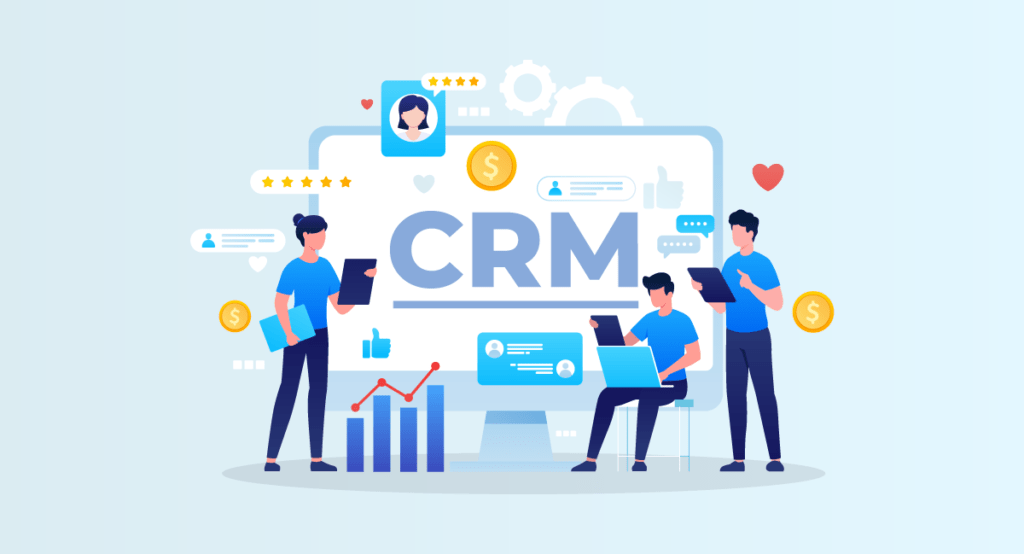
In the modern cut-throat business environment, providing exceptional customer experiences has become a prerequisite for achieving success. One powerful tool that businesses can use to improve customer experience is CRM software. CRM software development has revolutionized the way businesses interact with their customers, providing valuable insights and analytics to help businesses better understand their customers’ needs and preferences. In this article, we will explore how CRM software can help your business improve customer experience, and provide tips for successful implementation and adoption of CRM software.
What is CRM Software?
CRM software is a powerful tool that assists businesses in managing their interactions with both current and potential customers. It is designed to help businesses track, organize, and analyze customer data, including contact information, buying habits, and customer interactions. CRM software is used by businesses to improve customer relationships, enhance customer experience, and drive sales growth.
Benefits of CRM Software
CRM software provides numerous advantages to businesses, such as:
- Improved Customer Experience: CRM software helps businesses to better understand their customers’ needs, preferences, and behaviors, allowing them to provide more personalized and targeted interactions. Effective use of CRM software can result in higher customer satisfaction, loyalty, and retention rates.
- Increased Efficiency: CRM software can automate many manual tasks, such as data entry and customer communication, allowing businesses to save time and focus on more important tasks, such as sales and customer service.
- Better Data Management: CRM software allows businesses to centralize customer data in one place, making it easier to access and analyze. This can help businesses to identify trends, patterns, and opportunities for growth.
- Enhanced Collaboration: CRM software can improve collaboration between different departments, such as sales, marketing, and customer service. This can help businesses to provide a more cohesive and consistent customer experience.
- Improved Sales and Marketing: CRM software provides businesses with valuable insights into customer behavior and preferences, allowing them to create more targeted and effective sales and marketing campaigns.
Types of CRM Software
CRM software can be categorized into 3 primary types:
- Operational CRM: Operational CRM is primarily concerned with streamlining and enhancing customer-facing processes, such as sales, marketing, and customer service, through automation.
- Analytical CRM: Analytical CRM focuses on analyzing customer data to identify patterns, trends, and opportunities for growth. It is designed to help businesses make data-driven decisions and improve customer insights.
- Collaborative CRM: Collaborative CRM focuses on improving collaboration and communication between different departments, such as sales, marketing, and customer service. It is designed to help businesses provide a more cohesive and consistent customer experience.
How CRM Software Improves Customer Experience
CRM software can improve customer experience in several ways:
- Personalization: CRM software allows businesses to collect and analyze customer data, including preferences, behaviors, and interactions. This information can be to personalize customer interactions, such as recommending products or services that are relevant to their interests and needs.
- Automation: CRM software can automate many manual tasks, such as data entry and customer communication. This can help businesses to provide faster and more efficient service to customers, improving their overall experience.
- Consistency: CRM software can improve collaboration between different departments, ensuring that customers receive a consistent experience across all touchpoints, such as sales, marketing, and customer service.
- Feedback: CRM software allows businesses to collect and analyze customer feedback, which can use to improve products, services, and customer interactions. Utilizing CRM software effectively has the potential to boost customer satisfaction and foster long-term loyalty.
- Proactive Service: CRM software allows businesses to identify potential issues or opportunities for improvement before they become major problems. This can help businesses to provide proactive service to customers, improving their overall experience.
Choosing the Right CRM Software
When choosing CRM software, it’s important to consider several factors, including:
- Your Business Needs: Consider your business goals and objectives and choose CRM software that aligns with those needs. For example, if your goal is to improve customer service, choose CRM software with strong customer service features.
- Scalability: Choose CRM software that can grow and evolve with your business. Consider the size of your business and the number of users who will be using the software.
- Ease of Use: Choose CRM software that is easy to use and intuitive. When searching for CRM software, prioritize options that feature an intuitive interface and require minimal training to use effectively.
- Integration: Choose CRM software that integrates with your existing systems, such as your website, marketing automation software, and social media platforms.
- Support: Choose CRM software that offers strong customer support, including technical support, training, and resources.
Implementation and Adoption
Implementing and adopting CRM software can be a complex process, but it is essential for businesses looking to improve customer experience. Some tips for successful implementation and adoption include:
- Set Clear Goals: Set clear goals and objectives for implementing CRM software, and communicate those goals to your team.
- Involve Your Team: Involve your team in the implementation process and provide adequate training and resources.
- Start Small: Start with a small pilot project to test the software and work out any kinks before rolling it out to your entire team.
- Monitor and Measure: Monitor and measure the success of your CRM software implementation, and make adjustments as needed.
- Continuous Improvement: Continuously improve your CRM software and processes to ensure that you are providing the best possible customer experience.
Conclusion
CRM software development revolutionizes businesses interactions with customers, providing valuable insights to better understand their needs and preferences. Successful implementation requires clear goals, team involvement, monitoring, and continuous improvement. CRM software enhances customer experience, boosts satisfaction, and drives success.